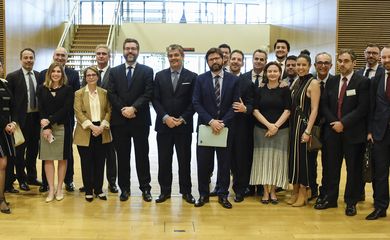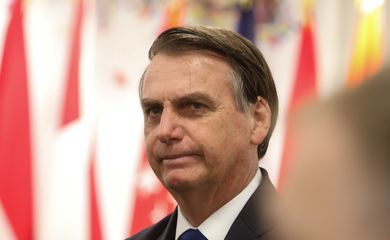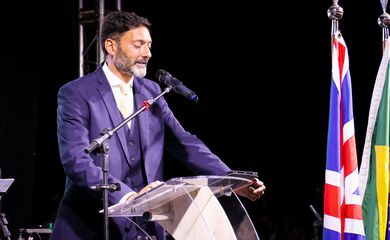Chancellor: EU deal “whets appetite” of other countries


The announcement of a Mercosur–EU deal is expected to “whet the appetite” of other countries for investment in Brazil and partnerships with the South American bloc, Brazilian Chancellor Ernesto Araújo said Tuesday (Jul 2).

“We’re very close to an agreement with EFTA [European Free Trade Association, made up of Switzerland, Norway, Iceland, and Liechetenstein] and Canada, maybe later in 2019,” Araújo said. The country is also approaching an agreement between Mercosur and Singapore and South Korea, the foreign minister added.
Standing next to Ambassador Pedro Miguel da Costa e Silva, who led the delegation of Brazilian negotiators who discussed the commercial part of the deal, Ernesto Araújo said investment can already be predicted throughout Mercosur countries, as a result of the agreement with the EU.
Steps
Araújo and Costa e Silva unveiled a series of steps that must be taken before the agreement is signed. First, both the European Union and Mercosur are conducting a legal assessments of all documents drafted by both sides. After that, the EU will translate each one of the documents into all languages spoken in Europe.
After this stage, the terms of the deal will be examined by the Parliaments in EU and Mercosur countries. The European Parliament, formed by Congress members elected by EU citizens, will look at the economic and commercial part of the deal alone. Once approved by the European members of Parliament and by the Congress in each of the Mercosur member countries, all of the economic and commercial topics negotiated between the EU and Mercosur should be brought into effect immediately.
Integration with the world
The Brazilian chancellor said the Mercosur–EU talks were in line with the interests of the governments of Brazil, Argentina, Uruguay, and Paraguay in seeking integration with the world and preventing isolation. He named the ties between Brazil and Argentina as a factor expected to encourage an overhaul in Mercosur.
Both the Brazilian Economy Ministry and the Foreign Ministry are working towards a reform in Mercosur. “One of the goals is the reform in the Common External Tariff,” a tool constantly used by bloc members to protect their markets. “This reform picks up steam after the agreement was passed,” the Brazilian chancellor argued.
“A Mercosur closed to us and to the world is not advantageous. The goal is to remove barriers between the four partners so the bloc may turn into an efficient platform for negotiation with third parties,” the chancellor pointed out.




